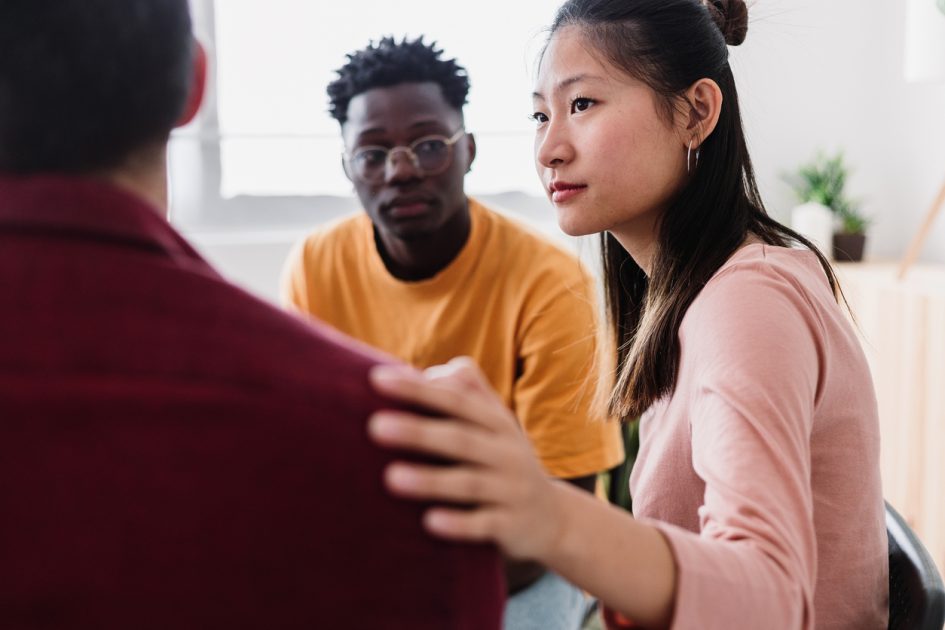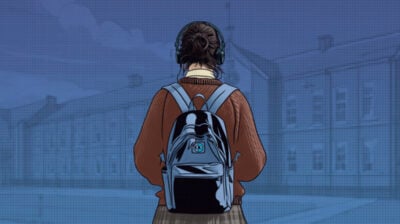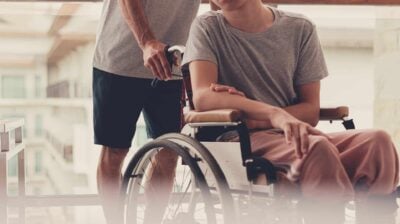What chronic pain taught me about friendship and support
Bhargavi shares her journey with chronic pain, from struggles with self-doubt to embracing support from those closest to her.

When I first developed my chronic pain condition at sixteen there was no clear cause. Multiple visits to doctors and specialists provided no answers. That time felt overwhelming, and the uncertainty affected my relationships. How people reacted to my chronic pain and the uncertainty it brought shaped my closeness with them, for better and for worse.
Struggling to be believed
Before my diagnosis, I didn’t tell many people about this pain. Only my family and closest friends knew what I was going through. At first, they were understanding, but as weeks turned into months with no apparent reason for my pain, attitudes changed.
One conversation with someone I looked up left a lasting impact. At that time, writing for more than a couple of minutes made my hands tremble with pain. I depended on others to write for me, which made me feel like a burden.
One day, this person told me, “People have to move beyond the pain to succeed. Pro athletes don’t stop when their muscles are sore. Successful people go for what they want, even when it hurts.”
Their words hurt. I wanted to cry, but instead, I nodded and let them believe I agreed. I wondered if my pain was my fault somehow.
I forced myself to write through the pain, convincing myself that ignoring it was the only way forward. Even though I followed their advice, our relationship grew distant. I was no longer comfortable opening up to them. I didn’t want whatever “tough lessons” they would give me. They made me feel I was never enough, and I gave up on trying to earn their approval.
How my chronic pain changed my relationships
Years later, I was finally diagnosed with a chronic pain condition. When I told my friends, their reactions varied. Some took it in stride, treating it as just another fact about me. They didn’t think I was a burden and our relationship didn’t change because of it.
Other friends were shocked and upset for me. Their empathy made me uncomfortable at first, but over time, I grew grateful that they cared so much.
One of my friends, naturally caring and attentive, started paying extra attention to me. If we went shopping, she would offer to hold my bag. If we walked for a long time, she would suggest taking breaks. When I was having a bad pain day, she checked in more often.
At first, her kindness irritated me. I felt somehow **too **seen and as if she was treating me like I was fragile. Even when I was in pain, I refused her help. I didn’t want to admit I needed it. No matter how much I hurt, I would insist on carrying my own backpack. It was easier to pretend I was fine and nothing was wrong than to admit I needed help. I still saw needing help as shameful.
Realising I deserved care
My friends seemed to understand my struggles better than I did. I had stopped playing the piano because of the pain, but it felt like losing a part of myself. It was bitter and depressing. I believed that, if I truly loved the piano I would keep doing it anyway, no matter how much it hurt.
One day, I told a new friend about my decision to quit. She simply said, “That must be so frustrating.”
It was the first time I realised the unfairness of my situation. My pain wasn’t my fault, and pushing through it wasn’t the answer. Slowly, I started accepting the care my friends gave me. At first, only occasionally. But over time, I even learned to ask for help myself. Their kindness made me realise that I had been unfair to myself. Acknowledging my pain didn’t make me weak, it allowed me to take better care of myself.
The power of supportive relationships
Something I have learned through my experiences is that healthy relationships encourage you to think kindly about yourself. The people closest to me shaped the way I viewed my pain. Some reinforced my self-doubt, while others helped me see that I deserved care and understanding.
Ultimately, I decide who I listen to. I choose the relationships I nurture and I choose how I treat myself. The people I want in my life, are the ones who see me with the same kindness I am learning to give myself.
Feeling overwhelmed and want to talk to someone?
- Get anonymous support 24/7 with our text message support service
- Connect with a trained volunteer who will listen to you, and help you to move forward feeling better
- Whatsapp us now or free-text SPUNOUT to 50808 to begin.
- Find out more about our text message support service
If you are a customer of the 48 or An Post network or cannot get through using the ‘50808’ short code please text HELLO to 086 1800 280 (standard message rates may apply). Some smaller networks do not support short codes like ‘50808’.






